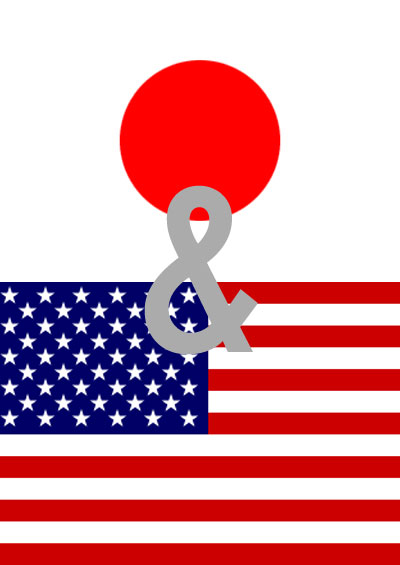U.S.-Japan: A Difficult Alliance
What’s at stake in Obama’s April 2014 visit.
April 21, 2014

The visit of a U.S. president to Japan is always a special affair — at least for Japan. It gives an opportunity to the Japanese government to seek and receive assurances about the health of their alliance and security relationship.
▪ Also: The Globalist’s
In other words, Japan must get a reconfirmation that America continues to remain committed to the defense of Japan, with which it signed a defense treaty in 1951. To the United States, it is a chance to project its global outreach, and to portray itself as the sole superpower in the world.
The last time Obama came calling to these shores was in November 2010, to participate in the APEC meeting in Yokohama.
The talks between himself and Japan’s Prime Minister Shinzo Abe will likely focus on three main issues — the stalled Trans-Pacific Partnership (TPP) talks, Japan’s relations with South Korea, and Japan-China conflict over the Senkaku/Diaoyu Islands.
Trade: Always an irritant
The biggest irritant in U.S.-Japanese relations in the post-war period, especially since the 1970s, has always been trade. It is no different now.
Both countries are still in a state of stalemate over key issues in the TPP talks. Akira Amari, Japanese Minister of State for Economic and Fiscal Policy, admitted recently that there are fairly big gaps over Japan’s tariffs on five agricultural produce categories — beef and pork, rice, wheat, dairy products, and sugar.
Japan has stubbornly resisted external pressure to fully allow imports of the so-called ‘core’ agricultural products. It remains to be seen if the ministerial-level talks now going on between the two countries’ delegations in Washington can break the impasse before the summit of President Obama and Prime Minister Abe on April 24 in Tokyo.
Japan is nervous that Obama might decide to push harder for a pact, ignoring Japanese sensitivities in this area.
Japan: Not just strife with China
A major issue which the United States would like to see Japan resolve is Japan’s bilateral relations with South Korea. Japan-South Korea relations have been in deep freeze since Abe returned to power in December 2012.
South Korean President Park Geun-hye has refused to meet with Abe since her inauguration in February 2013, due to his allegedly wrong perception of history, and the territorial dispute over Takeshima islands which are claimed by both nations.
The relations between the two countries took a nosedive after Abe made a trip to the Yasukuni shrine. In view of President Obama’s visit to the region, the United States had pressured its two Asian allies to mend ties ahead of Obama’s arrival.
The president is scheduled to arrive in Seoul on April 25 for a two-day visit, after staying in Tokyo for three days. Senior diplomats of both countries have been holding marathon talks to iron out their differences relating to the issue of the wartime enslavement of Korean women (also called the comfort women issue).
Japan claims this issue was already resolved under the 1965 treaty which normalized relations between the two countries. A meeting of minds, between Japan and South Korea, will most likely remain elusive.
And then there is the China issue
Japan’s insecurity is most visible when it comes to relations with China. The past quarter century has brought about a fundamental shift in Asia’s regional security environment.
Its booming economy gave China the muscle and the clout to throw its weight around the East and South China Sea. China has territorial claims against most of the countries in this region.
As regards Japan, Mr. Abe’s return to power in 2012 resulted in the eruption of conflict with China over the issue of Senkaku islands, a remote and uninhabited island chain geographically closer to China but claimed by both nations.
In view of the admittedly small possibility that China and Japan could slip into a military conflict over these Islands, a frank conversation about how Washington and Tokyo would approach this situation is a much-needed and proactive preparation. At a minimum, it can make the difference between a response that is well-coordinated and confident, or inconsistent and destabilizing.
What about China’s perspective? Is it nervous about the possible aims and outcome of Obama’s Asian trip? Well, they have already expressed their displeasure to Chuck Hagel, who has been in Asia preparing for Obama’s visit.
According to Ruan Zongze, a former diplomat with the China Institute of International Studies in Beijing, a think tank linked to the Foreign Ministry, “The United States is moving in a direction we don’t want to see, taking sides with Japan and the Philippines, and China is extremely unhappy about this.”
This reflects the frustration in China over America’s role in Asia. The United States is increasingly perceived to be supporting Japan and other countries with which China has territorial disputes. Of the countries being visited by Obama this week, China has disputes with three — Japan, Philippines and Malaysia.
On the other hand, the Japanese government is also nervous. It now seems as if the United States, in part to keep up pressure on Japan over other issues, may be unwilling to mention the recent spat between China and Japan over the issue of Senkaku Islands, in the joint statement at the end of the summit.
For the United States, it represents a sort of halfway house. The absence of any reference to Senkakus in the joint statement would be a disappointment for Japan, while at the same time failing to placate China.
Takeaways
Obama's visit is a chance for Japan to get assurances about the health of the US alliance and security relationship.
The biggest irritant in U.S.-Japanese relations since the 1970s has always been trade. It is no different now.
Of the countries being visited by Obama this week, China has disputes with three: Japan, Philippines and Malaysia.
Read previous

Can Britain Surpass Germany Economically?
April 20, 2014
